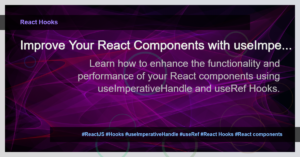SignalR vs Other Real-Time Communication Libraries: A Performance Comparison
Are you looking for a powerful real-time communication library for your application? Do you want to ensure optimal performance and a seamless user experience?
Real-time communication has become a crucial aspect of modern web applications, allowing for instant updates and interactive features. Among the various real-time communication libraries available, SignalR has gained significant popularity due to its robustness, scalability, and ease of use.
But how does SignalR compare to other real-time communication libraries in terms of performance?
The Performance Advantage of SignalR
SignalR is known for its ability to handle a large number of concurrent connections while maintaining low latency and high performance. It employs various techniques such as WebSockets, Server-Sent Events, and long polling to provide real-time updates.
Here are some key performance advantages of SignalR:
- Scalability: SignalR is designed to scale horizontally, allowing your application to handle a high volume of concurrent connections without sacrificing performance.
- Low Latency: SignalR minimizes communication delays by utilizing WebSockets whenever possible. This reduces the latency between the server and client, providing a near-instantaneous real-time experience.
- Fallback Mechanisms: SignalR automatically falls back to alternative transport protocols like Server-Sent Events or long polling if WebSockets are not supported by the client or server.
Comparing SignalR with Other Libraries
Although SignalR is a powerful real-time communication library, it’s essential to explore how it fares against other popular alternatives. Let’s take a look at two other libraries commonly used for real-time communication: Socket.io and Pusher.
Socket.io
Socket.io is a widely adopted real-time communication library for both server-side and client-side applications. It offers support for various protocols, including WebSockets, polling, and streaming. While Socket.io provides a versatile solution, its performance can be affected by the chosen protocol and configuration.
Here is a performance comparison between SignalR and Socket.io:
- Scalability: SignalR and Socket.io both offer scalability, but SignalR has an advantage when it comes to handling a high volume of concurrent connections due to its efficient use of WebSockets.
- Latency: SignalR, with its WebSocket-based approach, generally provides lower latency compared to Socket.io, especially in scenarios where real-time data updates are crucial.
- Ease of Use: SignalR has a straightforward API and integrates seamlessly with ASP.NET and ASP.NET Core, making it a preferred choice for developers already working in Microsoft environments.
Pusher
Pusher is a cloud-based real-time communication platform that simplifies the development of real-time applications. It offers features like channels, presence, and authentication. While Pusher provides an easy-to-use solution, it may not scale as effectively as SignalR, especially for applications requiring a high number of concurrent connections.
Here is a performance comparison between SignalR and Pusher:
- Scalability: SignalR excels in scalability and can handle a larger number of concurrent connections compared to Pusher.
- Latency: SignalR, with its WebSocket-based approach and fallback mechanisms, generally provides lower latency compared to Pusher, ensuring a smoother real-time experience.
- Cost: Pusher is a cloud-based platform that charges based on the number of connections and features used. SignalR, being an open-source library, offers a more cost-effective solution.
Conclusion
When it comes to real-time communication libraries, SignalR stands out from its competitors by offering exceptional performance, scalability, and ease of use. Its WebSocket-based approach and fallback mechanisms ensure low latency and a seamless real-time experience for your application.
While Socket.io and Pusher are popular alternatives, SignalR demonstrates superior performance when handling a larger number of concurrent connections.
If you’re looking for a real-time communication library that optimizes performance while providing a straightforward integration with ASP.NET and ASP.NET Core, SignalR is undoubtedly the go-to choice.





